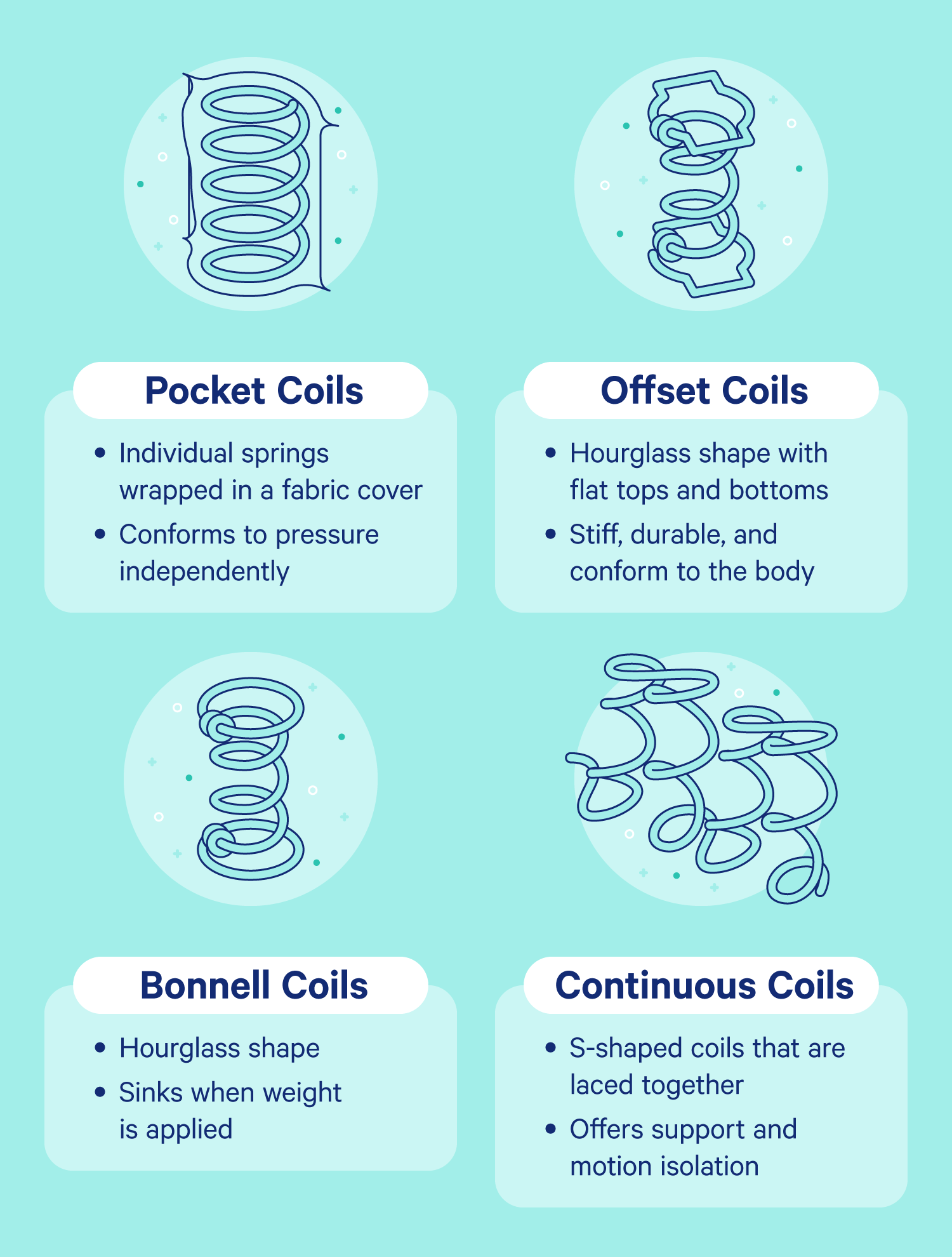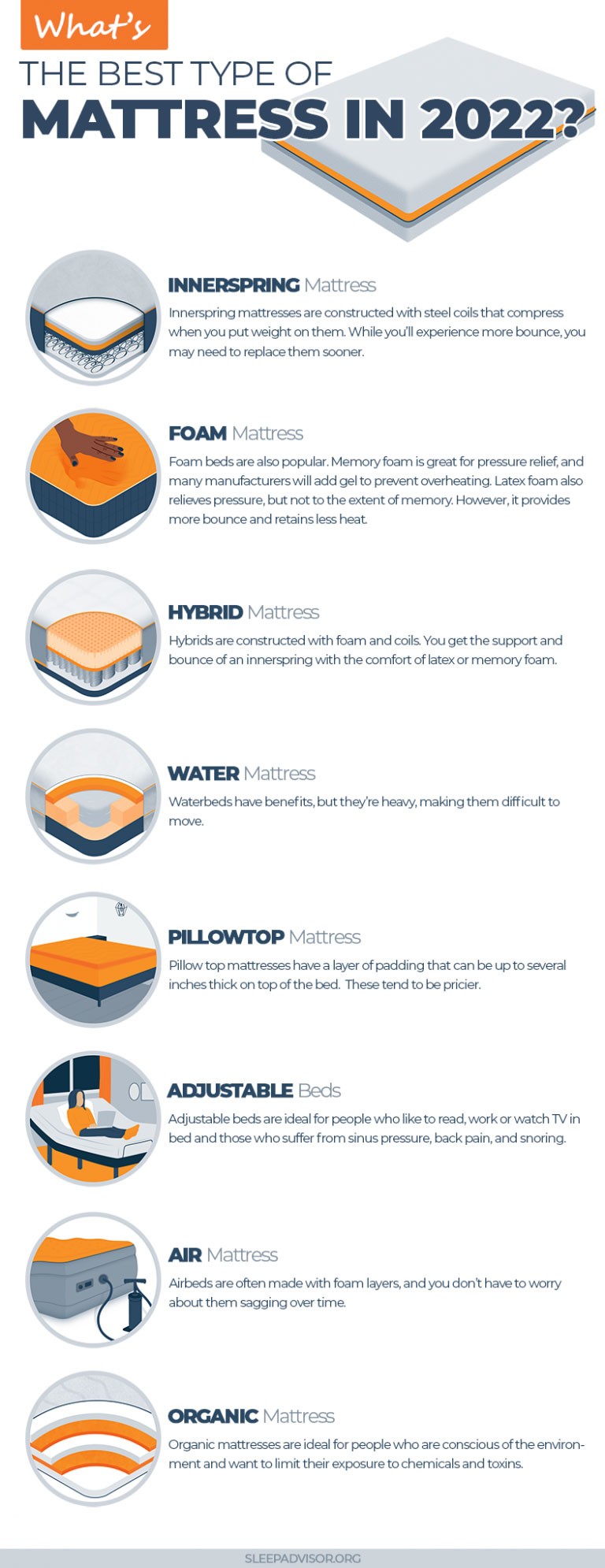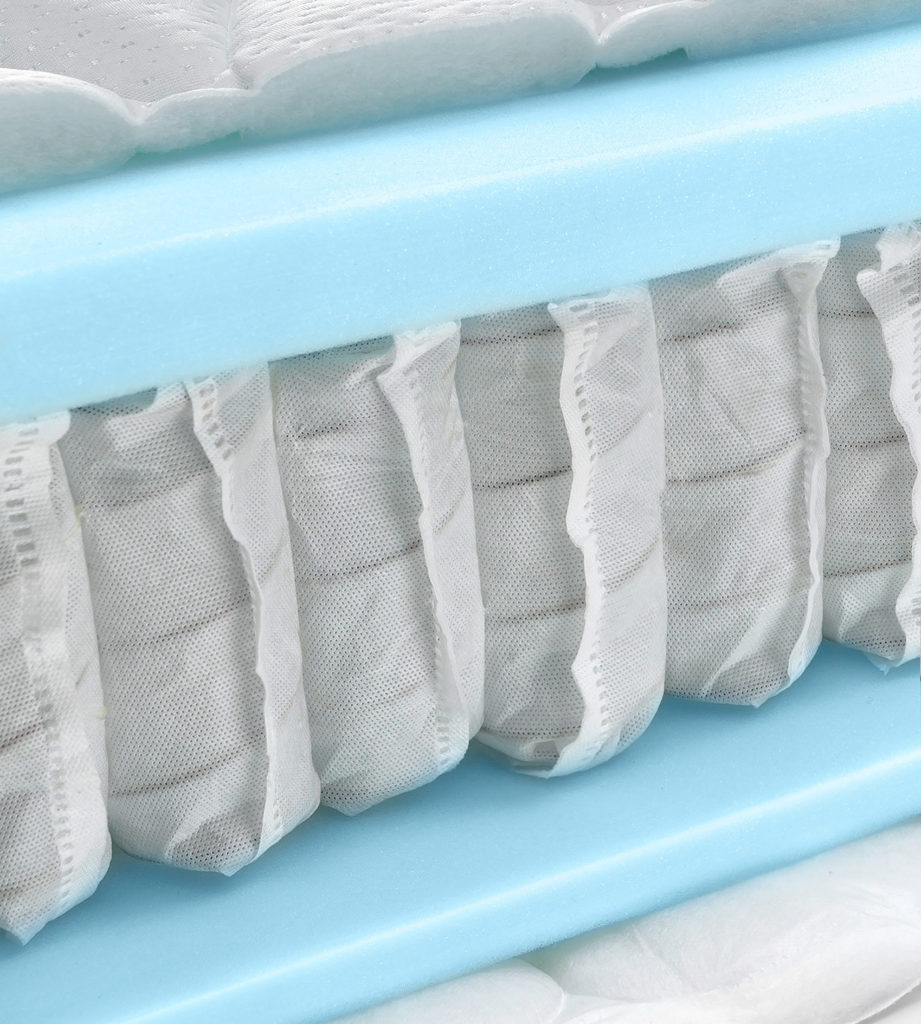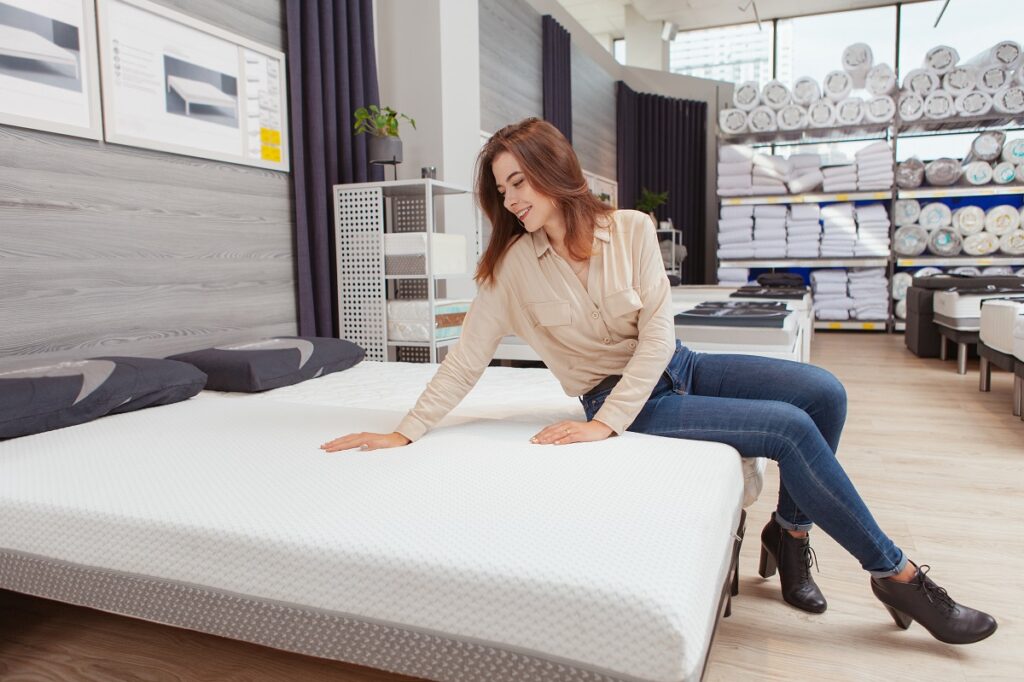When shopping for a mattress, most people ask themselves: how many coils should a mattress have? This is an important question to consider when choosing the right mattress for your needs. In this article, we’ll explain the different types of coils and how to determine the right number of coils for your mattress. We’ll also discuss the benefits of different coil counts and how they affect comfort and support. Finally, we’ll provide some tips for finding the mattress that’s best for you.
Benefits of Coil Mattresses

Increased Support
Coil mattresses offer superior support compared to other types of mattresses. The coils are individually wrapped and connected to provide better posture support. The coils also aid in relieving pressure points, which can help reduce back and neck pain. Coil mattresses are also more resilient and can maintain their shape well over time.
Better Motion Isolation
Each individual coil in a coil mattress is wrapped and connected to the others, allowing it to move independently. This feature helps to isolate motion, so when one person moves, it doesn’t disturb the other person.
More Durable
The individual coils of a coil mattress are more durable than other types of mattresses, so they can last longer. The coils are also less likely to become compressed over time, so you can enjoy the same level of comfort for longer periods.
Types of Coil Mattresses

Bonnell Coil
This type of coil is the oldest and most widely used in mattress production. It is made from heavy-gauge wire that is coiled into an hourglass shape and secured with helical wires. Bonnell coils are known for their durability and are typically found in entry-level mattresses.
Offset Coil
Offset coils are similar to Bonnell coils in that they are hourglass-shaped, but they are reinforced with a top and bottom flat wire. This helps to increase support and contouring. Offset coils are often used in combination with other types of coils, such as pocket or continuous coils.
Pocket Coil
Pocket coils, also known as Marshall coils, are individually-wrapped coils that are usually encased in fabric pockets. This helps to minimize motion transfer and increases contouring. Pocket coils are often used in higher-end mattresses and are known for their superior comfort and durability.
Continuous Coil
Continuous coils are rows of coils that are linked together to form one piece. This helps to provide consistent support throughout the mattress, but it also means that motion transfer can be more noticeable. Continuous coils are often used in combination with other types of coils for a more customized feel.
No matter which type of coil you choose, it’s important to understand what is pocket coil mattress and how it affects the overall feel and support of the mattress. By taking the time to research the different types of coils and their benefits, you’ll be able to find the mattress that is best suited to your needs.
How Many Coils Should a Mattress Have?

When it comes to mattresses, the number of coils is an important factor in determining the comfort and support you will receive. But how many coils should a mattress have?
The amount of coils in a mattress can range from as few as 300 to over 1,000. The type of mattress and the size of the bed will also affect the ideal number of coils. Here are some factors to consider when determining the right number of coils for your mattress:
- Firmness: Generally, the more coils a mattress has, the firmer it will be. However, if you’re looking for a softer mattress, fewer coils can give you the desired softness.
- Motion Transfer: If two people are sleeping on the same mattress, a higher coil count can help reduce motion transfer when one person moves.
- Durability: The number of coils affects the durability of a mattress. Generally, the more coils a mattress has, the longer it will last.
In general, what is a coil spring mattress will have 300-400 coils in a twin size, 400-600 coils in a full size, 500-800 coils in a queen size, and 600-1,000 coils in a king size. However, this is just a general guideline. You should always consult with a mattress expert who can help you find the right mattress for your needs.
It is also important to consider the quality and type of coils used in the mattress. For example, innerspring mattresses typically have hourglass-shaped steel coils while pocketed coils are made of individual steel coils wrapped in fabric. Both of these types of coils provide different levels of comfort and support.
Ultimately, the number of coils a mattress should have depends on your individual needs and preferences. Consider the factors outlined above and consult a mattress expert to help you find the perfect mattress for your needs.
Factors to Consider When Choosing a Mattress
Sleep Position
The type of mattress you select should be based on your preferred sleeping position. If you sleep on your back, you need a mattress that provides ample support for your spine while still being comfortable. If you sleep on your stomach, you’ll need a firmer mattress that prevents your lower back from sinking in. If you sleep on your side, you’ll need a mattress that is both soft and supportive.
Weight
Your weight also plays a role in determining the type of mattress you should buy. A mattress for a person who weighs less than 130 pounds should be on the softer side to provide adequate cushioning. For someone who weighs between 130 and 230 pounds, a medium-firm mattress is recommended. People who weigh more than 230 pounds should opt for a firmer mattress to provide ample support.
Price and Budget
Lastly, the price and budget of the mattress should be considered. Generally speaking, the higher the number of coils in a mattress, the more expensive it will be. But the number of coils isn’t the only factor to consider when it comes to determining the quality of a mattress. A mattress with fewer coils can still be comfortable, provide good support, and last for many years. It’s important to research mattresses and compare prices to find the best option for you.
When it comes to determining how many coils in a good mattress, it’s important to consider your sleep position, weight, and budget. The ideal number of coils for one person may not be the same for another person. The best way to find the right mattress for you is to do your research and shop around.
Frequently Asked Questions
What Factors Should I Consider When Choosing the Number of Coils in a Mattress?
Firmness: Depending on your preferences and sleeping position, you may prefer a firmer mattress with more coils, or a softer mattress with fewer coils.
Support: More coils typically provide more support, while fewer coils might cause the mattress to sag, resulting in reduced support.
Weight: Heavier individuals may require more coils for increased support, while lighter individuals may not need as many coils.
Price: Usually, more coils mean a higher price tag, so it’s important to consider your budget when choosing the number of coils for your mattress.
Motion Transfer: More coils typically reduce motion transfer, meaning that if your partner moves in bed, you won’t feel it as much. Fewer coils may result in more motion transfer.
Durability: More coils typically make mattresses more durable, while fewer coils may result in the mattress wearing down faster.
What type of mattress is best suited to my sleeping style?
Side sleepers require mattresses with softer surfaces and more cushioning while back and stomach sleepers require firmer mattresses. If you’re a combination sleeper, look for a mattress that provides a balance of support and comfort. Latex mattresses are great for combination sleepers and those who prefer a medium-firm feel. Memory foam mattresses are beneficial for side sleepers, offering pressure relief and contouring support. Innerspring mattresses are ideal for those who prefer a firmer feel and the added bounce. Hybrid mattresses combine the benefits of memory foam and innerspring, making them a great option for all types of sleepers.
How do more Coils Affect the Comfort and Support of a Mattress?
More coils in a mattress generally means increased comfort and support. The greater number of coils helps to evenly distribute weight and body contours for a more comfortable sleep. As a result, a mattress with more coils can reduce body aches and pains and ease pressure points. The increased number of coils also provides better breathability and helps regulate temperature, creating an overall more comfortable sleep experience.
Are there any drawbacks to having more coils in a mattress?
Yes. While more coils may lead to better support and comfort, there are some drawbacks to having more coils in a mattress. These include:
- Higher Cost: More coils generally mean a higher price tag. This is because manufacturers have to use more material and labor to put the mattress together.
- Heavier Weight: A mattress with more coils will be heavier, making it difficult to move around or to switch positions in bed.
- More Noise: More coils can lead to more squeaks and creaks as the coils rub against each other and the mattress frame.
Are there any Benefits to Having Fewer Coils in a Mattress?
Fewer coils in a mattress can help reduce costs, as fewer coils are usually cheaper. Additionally, fewer coils can provide more consistent support across the mattress, which some sleepers may prefer. However, fewer coils can result in a mattress with less motion isolation, meaning it may not be the best choice for couples or those who share a bed.
Conclusion
When it comes to mattress coils, it is important to consider the size, type, and number of coils to get the best sleep. Coil counts range from as few as 200 to as many as 1,000, and the coil type and size can affect the mattress’s comfort level and support. Ultimately, the best mattress for you will depend on your body type, sleeping style, and preferences.






